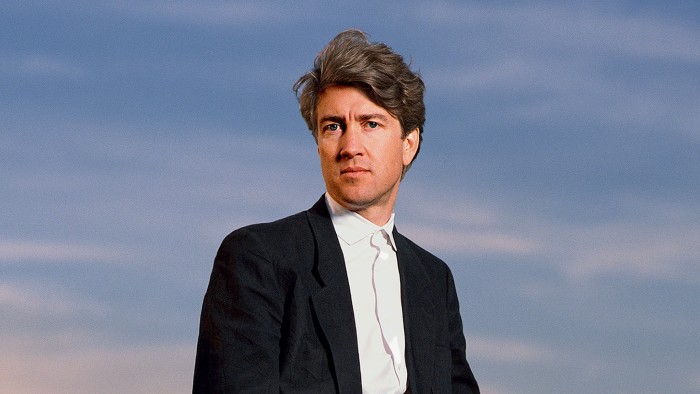Summarize this content to 2000 words in 6 paragraphs in Arabic I never wanted to talk to David Lynch. Across 30 years, various chances arrived to interview the late American filmmaker about this or that art project, musical sideline or even actual movie. I avoided them all. It’s not that I wasn’t a fan. In fact, no director meant more to me. But in film journalism, even the greatest maestro is, in the end, reduced to work: Spielberg a time slot, Scorsese a deadline.For me, Lynch transcended that. But more important still, interviews with him felt pointless. The films he made were so rich and heady — with their dreamy torch songs and grisly secrets — they spoke for themselves.Now Lynch has died at 78. I will never get to meet him and say something stupid like thank you. Acquaintances reported a good companion, ice-cream hair and gee-whiz phraseology reliably in place. For his part, you sensed he was amused by critics; tickled to hear the theories he’d then smile at, shrug at, ignore.Kyle MacLachlan, who played upstanding FBI man Dale Cooper in Twin Peaks, put it neatly. Lynch, he said, saw questions as the stuff of life. He just didn’t rate answers.But oh, the questions! MacLachlan also starred in Lynch’s scandalous-in-1986 Blue Velvet as voyeur hero Jeffrey Beaumont. The character felt drawn as a proxy for Lynch, so when co-star Laura Dern said of him: “I don’t know if you’re a detective or a pervert,” it was clear whom she meant. Two things at once was always a Lynch signature: like the blend of the European surrealism that inspired him and the Americana to which he applied it.Except, really, there were many more than two things. On screen, Lynch could also be absurdly funny, bluntly horrible or keeningly sad. (The last was often overlooked, despite 1980’s The Elephant Man and 1999’s The Straight Story.) Then there were the other notes: moods and images that seemed to speak to and from unnamed parts of the psyche. His luxe masterwork Mulholland Drive (2001) and the hard, sprawling Inland Empire (2006) were framed as movies about Hollywood, but went darker and deeper even than that poisoned well. Beyond the real is the fake — but beyond that? And which is which?The puzzle extended to himself. Some would argue that part of Lynch’s genius was building his personal brand. And yet he really did live and work amid endless black coffee, sugary treats and, until the onset of emphysema, cigarettes. A cynic would assume that, behind the mask of the childlike milkshake drinker, the real Lynch was the canny celebrity director making ads for Gucci. Sometimes it seemed like it, and just as often completely vice versa.A Lynch interview that is worth tracking down aired on the BBC in 1999. The filmmaker Mark Cousins points out there are angels in many Lynch movies. “There are?” Lynch says. Then he mentions he believes in angels. Not literally? Cousins asks. The moment hangs. “Yeah,” Lynch replies, with a smile you could rewatch for days and not confidently decode. How brilliant it was that he cracked the mainstream. In a Lynchian kink of logic, the means was not a film, but a TV show, Twin Peaks. It was a phenomenon: a surrealist murder mystery splashed over a thousand magazine covers, viral in the way of the world before digital.Me, I was pre-sold. I’d discovered Lynch a couple of years before. It was 1987, I’d just turned 15, and the newly released Blue Velvet was playing in a midnight double bill with Lynch’s fabled debut Eraserhead (1977). A friend and I sneaked in, lured by word of cult titillation, telling parents we were at the other’s house.When the lights came back up, I’d certainly learnt a few things. That Lynch could write a killer line, for one, but that the sound of an empty room was better yet; that great scenes don’t hurry, they seep; that the shocking could be inexplicably hilarious, and also truly shock; that a non sequitur can make perfect sense. Much had changed, not least my professional future. I fell in love with films only after first falling in love with films by David Lynch.Now people can be awfully exclusionary about their favourite art, even past their teens. Yet when Twin Peaks exploded, I was thrilled, which says far more about Lynch than about me. The beauty of this reaching water coolers was that it so clearly came from the same mind that made Eraserhead. To use a very Gen X concept, Lynch never sold out. Twin Peaks just subversively sweetened the pill, and felt still more gloriously odd for being seen by millions.The numbers would dip. Lynch’s 1990s were bumpy, though history would prove the faithful right. After Mulholland Drive, a new generation of young fans instinctively got him. His stories took place in a now-and-then-at-once that didn’t date. That Lynchian persona adapted with ease to the online age. He was always current. Which helps explain why his death felt so jarring, amplified by fondness for a figure it was easy to feel you knew through his work. If Lynch played games, his films and shows also brimmed with something weirdly rare: sincerity.Singularity too. A Lynch vision could be widely adored, but was absolutely his alone. That also meant a career spent butting heads with the corporate entertainment industry. Every Lynch project that happened nearly didn’t. Will we see his like again? It was a bloody-minded miracle we saw him in the first place. Hollywood, you suspect, never really forgave him for making its whole business look a little irrelevant.The last major Lynch was Twin Peaks: The Return (2017), which circled back to the world of the show. It was a pure triumph, encompassing every flavour of the director — bizarre, abyssal, sweet-hearted, tragic, comic, cosmic — and introducing still more so late in the game. Nostalgia was given just the right degree of houseroom, behind fierce creative ambition and impossible poignancy. Even before the sad and striking number of the returning cast that died between filming The Return and the show being released, it came with the mark of great art: honesty about mortality.It also had a knockout ending. But then Lynch was always great at those, leaving us with happy robins and, yes, forgiving angels, that looked so picture perfect they couldn’t help ask strange and troubling questions. And those questions then got stuck in your head. They’re still there now, of course. As is David Lynch. So thank you.Find out about our latest stories first — follow FT Weekend on Instagram and X, and sign up to receive the FT Weekend newsletter every Saturday morning
rewrite this title in Arabic My 30 years adoring (and avoiding) David Lynch
مقالات ذات صلة
مال واعمال
مواضيع رائجة
النشرة البريدية
اشترك للحصول على اخر الأخبار لحظة بلحظة الى بريدك الإلكتروني.
© 2025 جلوب تايم لاين. جميع الحقوق محفوظة.





